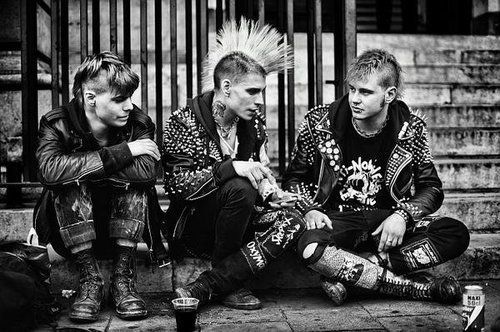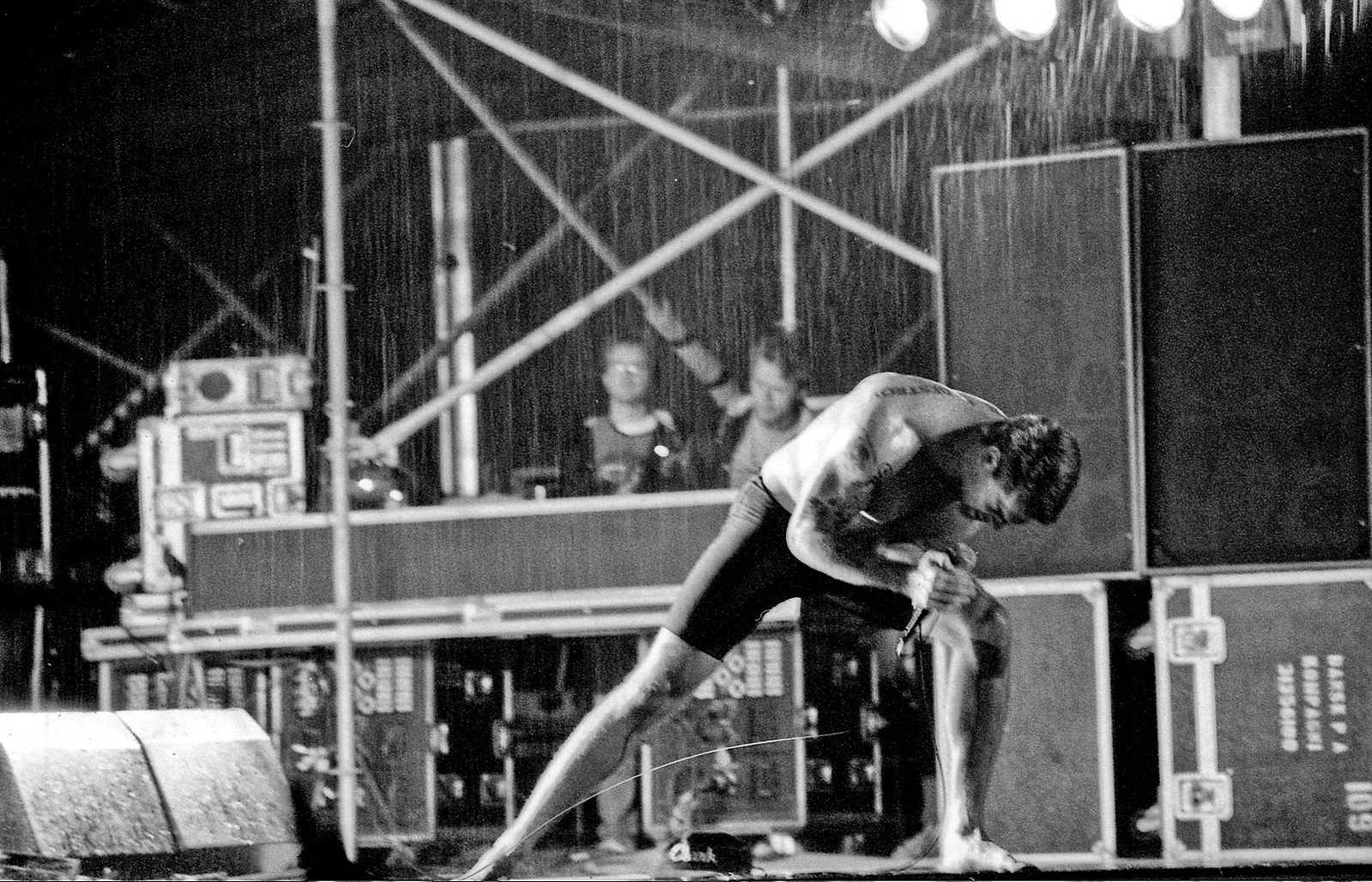How Punk Bred Generations of Political Thinking

By:
It's hard to get young people interested in politics, and it's even harder to get them to go out and vote. One of the ways the younger generation does get politically roused is when political issues are tied to things they already care about, and music is often an outlet for that.
With an election approaching, few realize that many of the young voters who will go to the polls have been inspired by punk rock. We spoke to writer/musician Henry Rollins and author Antonino D’Ambrosio to explore this.
"Now it is 1984
Knock-knock at your front door
It's the suede/denim secret police
They have come for your uncool niece"
-Dead Kennedys, "California Uber Alles," 1980.
ALSO: These Are the Powerful Final Words of Death Row Inmates
Punk rock was pretty much about rebelliousness and nonconformity from the get go. When it was rising to prominence in the 1970s, it was all about being loud and rejecting the status quo. Punk isn't just about shocking conventional people, it's about actively resisting them. Because of that general aesthetic that grew, the genre and the people surrounding it often infused political messages into their lyrics, conversations and public statements. That didn't only influence the generation that grew up with punk while it was on the rise, but it has influenced subsequent generations who have listened to the older albums and some of the music still being made today.
Personally, I was a punk kid from ages 11 to 14. I had a foot-tall mohawk, a pleather jacket, a bleached denim vest and torn jeans with patches and pins everywhere.
 Pinterest - pinterest.com
Pinterest - pinterest.com
These days I don't have a mohawk, but the political ideas that I was exposed to at that time shaped my personality and interests for the rest of my life. I know many people from my generation who weren't around when punk was at its height and went through a similar thing.
While what is truly punk has been debated many times, there's a general consensus that punk almost always involves being rebellious and outlandish. It can sound many different ways, but punk does have a certain attitude that persists. Where and when punk started has also always been debated, but many of its early leaders can be tied to bands that played the historic CBGB club in New York City in the 1960s.
How punk and politics connect
The intersection of punk and politics, and clashes with authority, started soon after the genre became prevalent. "Almost immediately, Punk Rock was seen as an anti-authoritarian and therefore, anti-government movement," Henry Rollins, who was the lead singer for Black Flag in the 1980s and has been a prominent political thinker, told ATTN:.
"Law enforcement and Punk rockers soon met frequently. Punk Rock questioned authority and you can’t do that without becoming more familiar with government actions."
Rollins explained that not every punk rocker was politically savvy, but they were often surrounded by people who were. "If you wanted to be informed, someone was always around to tell you about things that were happening," he said.
"It’s important to remember that the musicians within the punk movement — and any artist for that matter — are first and foremost a citizens of the world," Antonino D’Ambrosio, who edited the book "Let Fury Have the Hour: Joe Strummer, Punk, and the Movement that Shook the World," told ATTN:. "For this reason, they serve as a mirror reflecting back the issues that dominate the social, political, cultural landscape of their time (and open a window into a different world)," he said.
D'Ambrosio explained that many bands were dealing with the "fallout of industrialization and havoc post-industrialization" that created the income inequality and power inequality we see today. Some punk bands took on a more nihilistic "we're all screwed" kind of attitude, but other artists like Joe Strummer of The Clash used music to promote resistance and change.
Rollins saw how this kind of movement for change developed between bands and fans of the music over the years. "I have seen benefits, people talking between bands, between songs, bringing awareness to causes," he said. "I never saw this at arena rock shows when I was young. It was people like Joe Strummer who became the news for a lot of young people." He said issues like LGBT rights, Tibetan rights, and anti-war ideology were focused on regularly.
That said, with the fluctuating prevalence of people who saw these issues as reasons to remain apathetic, not everyone was so passionate about fighting to fix the system. "I saw plenty of apathy in punk scenes all over the world," Rollins said. "For a lot of people, it was about getting high and dropping out. It was the opposite of activism."
ALSO: Why We Listen to Sad Music When We're Sad
 Wikimedia/Pelle Sten - wikimedia.org
Wikimedia/Pelle Sten - wikimedia.org
D'Ambrosio pointed out that music is constantly changing, and the people accessing music of the past is constantly in flux:
"Moving back and forth in time, punk offered a history lesson, teaching us about people, places, ideas, that could serve us in becoming more impactful citizens of the world."
What punk did and what genres like hip-hop and jazz have done for political thought reverberates through time. He said many contemporary punk artists are continuing to speak out, from established groups like Anti-Flag to relatively newer groups like Ted Leo and the Pharmacists or The Hold Steady. Foreign groups like Pussy Riot that are still getting in trouble for public displays of resistance show that punk is still rebellious the world over. Like many punk bands before it, Pussy Riot is speaking out for the LGBT community, which is terribly oppressed in Russia.
One thing that has to remain in view is how technology and the ways ideas are exchanged has changed since punk and other genres began. "I think at this point, a lot of information is easier to get, to the point to where it’s a private pursuit," Rollins said.
Where music and traditional news sources might have been all people had back in the day, there are many other ways to learn about the world now. Rollins explained:
"All you need is a site address popping up on your phone. To me, Punk Rock was always Folk Music. It was music for folks, a conversation, a meeting place."
It seems unavoidable that punk and other genres that involve political ideas will continue to influence coming generations indefinitely. Just because you weren't 16 when the first Crass or Bad Brains album came out doesn't mean it won't resonate with you and change your perspective.
Many have said punk is dead over the years, and perhaps it doesn't have the notoriety it used to have, but the ideas are certainly still kicking. You don't have to be in the Top 40 to have an impact.
